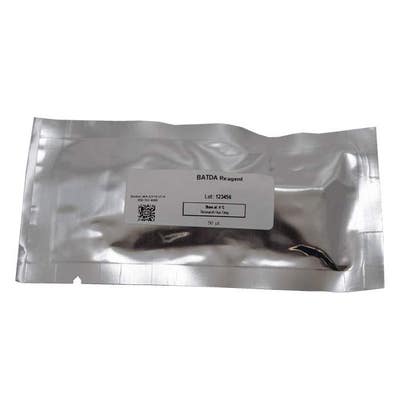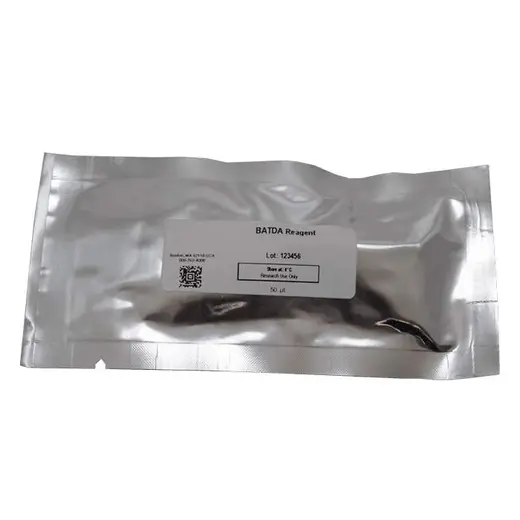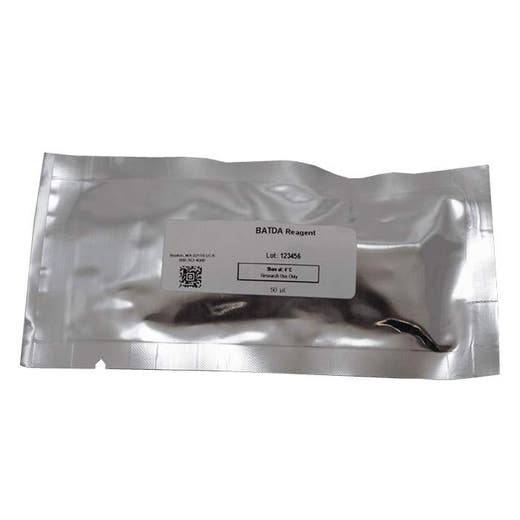
DELFIA BATDA Reagent, 50 µL



| Feature | Specification |
|---|---|
| Application | Protein Quantification |



Loading...
Product information
Overview
The DELFIA® BATDA Reagent is intended for labeling of cells to be used in short term cytotoxicity tests performe utilizing time-resolved fluorometry in the detection. It forms part of the AD0116 DELFIA® EuTDA Cytotoxicity Reagents pack, but is also available as an individual product. The individually available DELFIA BATDA labeling reagent is sufficient for 10x96 wells.
DELFIA cytotoxicity assays offer a non-radioactive method to be used in cell mediated cytotoxicity studies. The method is based on loading cells with an acetoxymethyl ester of a fluorescence enhancing ligand. After the ligand has penetrated the cell membrane the ester bonds are hydrolyzed within the cell to form a hydrophilic ligand, which no longer passes through the membrane. After cytolysis the released ligand is introduced to a europium solution to form a fluorescent chelate. The measured signal correlates directly with the amount of lysed cells.
Specifications
| Application |
Protein Quantification
|
|---|---|
| Automation Compatible |
Yes
|
| Brand |
DELFIA
|
| Detection Modality |
DELFIA
|
| Product Group |
Buffer
|
| Shipping Conditions |
Shipped in Blue Ice
|
| Target Class |
Biomarkers
|
| Technology |
TRF
|
| Unit Size |
50 µL
|
Resources
Are you looking for resources, click on the resource type to explore further.
DELFIA® immunoassays are particularly well suited for discovery of specific, high-affinity monoclonal antibodies (mAbs)...
This guide provides an introduction to the DELFIA method, and to the labeling procedures involved.


How can we help you?
We are here to answer your questions.






























